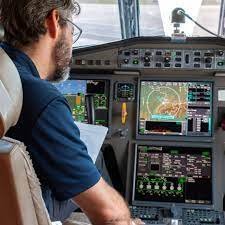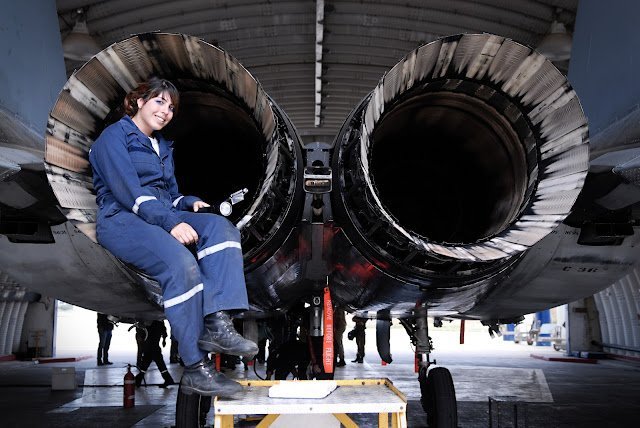Have you ever been interested in working on aircraft? If you have, then you may have thought about becoming an aviation mechanic. Aviation mechanics are responsible for the maintenance, inspection, and repair of all aircraft components. Unlike many other professions, aviation mechanics are required by the Federal government to have a license in order to work.
Becoming an Aviation Mechanic
The first step to becoming an aviation mechanic is to obtain a high school diploma or equivalent. Once you have done that, you will need to attend an FAA-approved aviation maintenance technician school and complete an FAA-administered written, oral, and practical exam. Alternatively, you can gain 18 months of on-the-job training under the supervision of a certified mechanic. Once you have completed your schooling or on-the-job training, you will be able to apply for your mechanic certificate.
There are three different types of certificates that an aviation mechanic can obtain: Airframe, Powerplant, or both Airframe and Powerplant concurrently. An Airframe certificate authorizes the holder to work on the airframe of the aircraft only, while a Powerplant certificate authorizes the holder to work on only the powerplant of the aircraft. possessing both certificates allows the holder to perform any kind of maintenance work on any part of the aircraft.
Working as an Aviation Mechanic
So what does an aviation mechanic actually do? The day-to-day tasks of an aviation mechanic vary depending on their place of employment. Generally speaking, however, most mechanics spend their days performing scheduled maintenance checks, troubleshooting problems reported by pilots or flight crews, repairing damage caused by accidents or incidents, and inspecting aircraft before and after flights.
Being an aviation mechanic can be a challenging but rewarding career choice. Mechanics often have opportunities to travel and see new places, meet new people, and work with cutting-edge technology. In addition, many mechanics are able to find steady work with good pay and benefits.
What Hard Skills Are Important for an Aircraft Mechanic to Learn?
To work as an aircraft mechanic, you will need to have a strong understanding of aviation mechanics principles. These principles include the following hard skills:
Aircraft materials and construction: You will need to know about the different materials used to build aircraft, as well as how those materials are put together.
Aircraft systems: You will need to be familiar with the various systems that make up an aircraft, such as the electrical system, the hydraulic system, and the fuel system.
Aircraft maintenance: You will need to know how to perform routine maintenance tasks on aircraft, as well as how to troubleshoot and repair problems when they occur.
These are just a few of the hard skills that you will need to learn in order to become a successful aircraft mechanic. In addition to these hard skills, you will also need to develop strong soft skills, such as problem-solving ability, communication skills, and attention to detail.
The Pros and Cons of Training to Become an Aircraft Mechanic
There are a few things you should consider before deciding if training to become an aircraft mechanic is the right choice for you. Let’s take a look at some of the pros and cons of this career:
Pros:
Good pay: Aircraft mechanics earn a median salary of $60,670 per year, which is higher than the median salary for all occupations.
Job stability: The demand for aircraft mechanics is expected to remain steady in the coming years.
Opportunities to travel: Many mechanics have the opportunity to travel, both domestically and internationally, as part of their job.
Flexible work schedule: Mechanics often have the ability to choose their own work schedule, which can be a great perk for those with families or other commitments.
Cons:
Expensive training: Training to become an aircraft mechanic can be expensive, especially if you need to obtain certification from the Federal Aviation Administration (FAA).
Physical demands: The job of an aircraft mechanic can be physically demanding, as it often involves lifting heavy objects and working in cramped spaces.
Work schedule may not be consistent: The work schedule of an aircraft mechanic may not be consistent, as they may be required to work evenings, weekends, and holidays.
So there you have it! These are just a few of the pros and cons of training to become an aircraft mechanic. Be sure to weigh all of these factors
Conclusion:
If you are thinking about becoming an aviation mechanic, there are a few things you should know first. Aviation mechanics are responsible for the maintenance of all aircraft components and must be licensed by the Federal government in order to work. To become licensed, one must either attend an FAA-approved aviation maintenance technician school or complete 18 months of on-the-job training under a certified mechanic. Employment prospects for aviation mechanics are good, and mechanics often enjoy steady work with good pay and benefits. Travel opportunities are also common in this profession.



